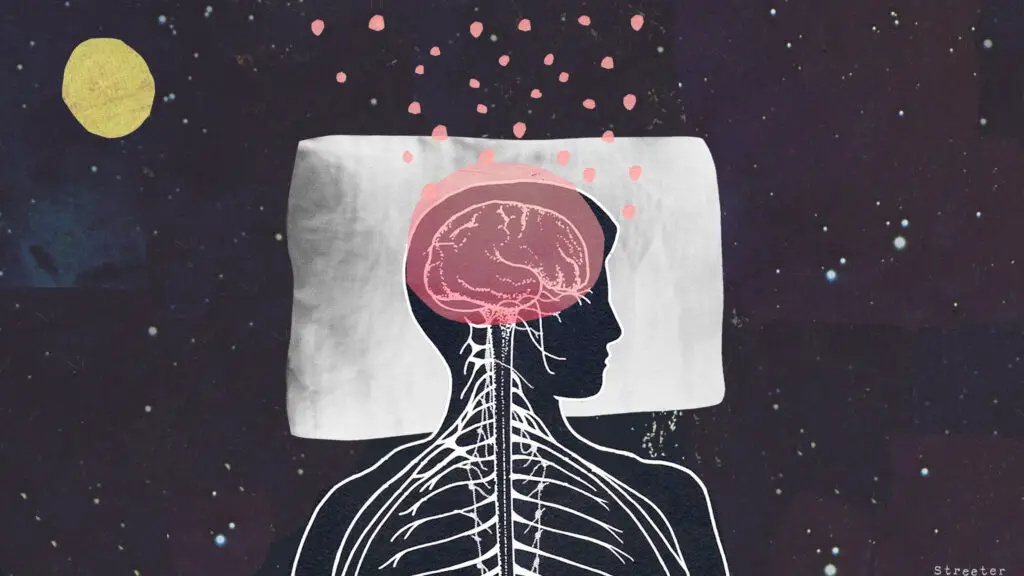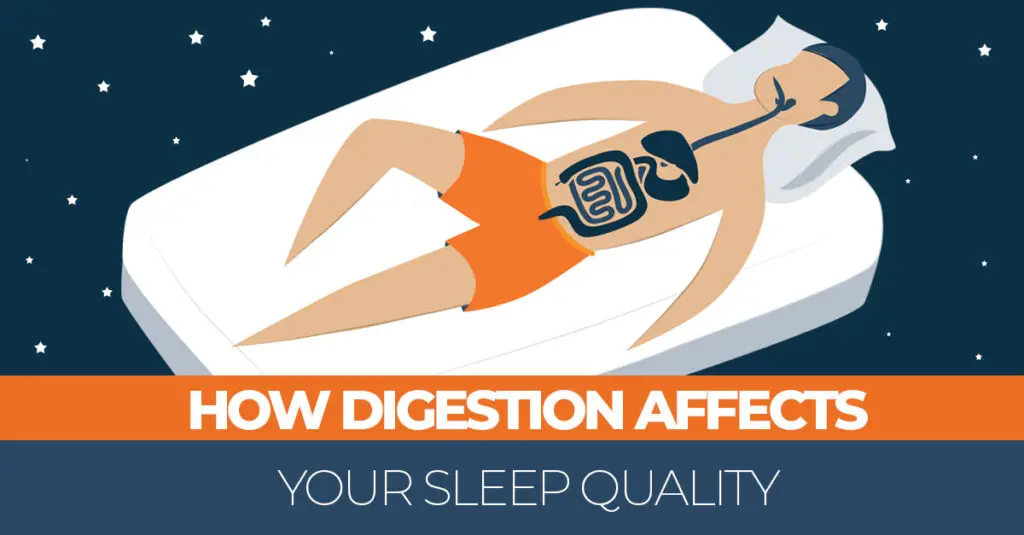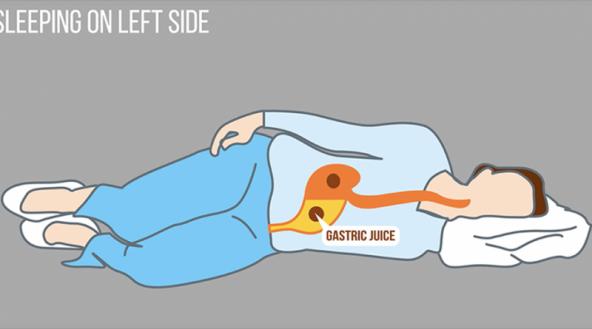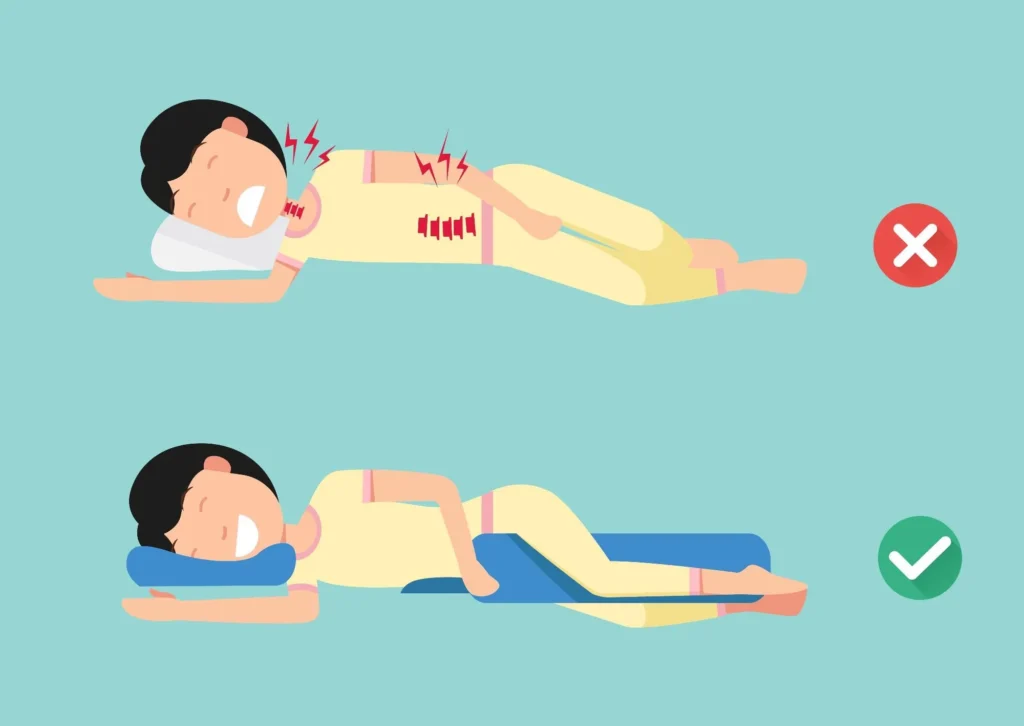We all have our preferred sleep positions, whether it’s curling up on our side, lying flat on our back, or even stomach-surfing the mattress. But have you ever stopped to wonder if your choice of sleep position could actually impact your overall health?
Surprisingly, emerging research suggests that the way we sleep can play a crucial role in promoting brain function, aiding digestion, and even optimizing the function of a little-known system called the glymphatic system.
So, let’s delve into the fascinating science behind sleep positions and discover the benefits they can offer to our brain, stomach, and glymphatic health.
Brain Health: Unveiling the Position-Brain Connection

Recent studies have uncovered a compelling link between sleep positions and brain health. Research suggests that sleeping on your side, particularly the left side, may enhance the brain’s waste clearance system, known as the glymphatic system.
By facilitating the removal of toxins and waste products from the brain, sleeping on the left side might contribute to improved cognitive function and reduced risk of neurological disorders. We’ll explore the scientific mechanisms behind this connection and shed light on how sleep positions influence brain health.
Soothing the Stomach: The Impact of Sleep Positions on Digestion

If you’ve ever experienced indigestion or acid reflux, you know how uncomfortable it can be to sleep on your back or stomach. Sleeping on your left side has been found to be beneficial for digestion, particularly in individuals with gastrointestinal issues.
This is especially important for individuals who suffer from gastroesophageal reflux disease (GERD), which is characterized by frequent acid reflux. By aligning the stomach and the esophagus, this position can help prevent the backflow of stomach acid and reduce discomfort.
Sleeping on your left side can also help promote healthy digestion. This is because the position allows food to move more easily from the small intestine to the large intestine, which can help prevent constipation.
Unveiling the Glymphatic System: The Unsung Hero of Brain Health

Have you ever heard of the glymphatic system? Unlike its better-known counterpart, the lymphatic system, the glymphatic system is a unique network of vessels in the brain that helps remove waste and toxins from the brain. It is most active during sleep, and research has shown that it plays a crucial role in brain health.
Recent research has indicated that the glymphatic system plays a vital role in removing metabolic waste products and toxic substances from the brain, contributing to overall brain health.
A study published in the Journal of Clinical Neurology found that sleeping on the left side increased the glymphatic transport of cerebrospinal fluid, which is crucial for maintaining brain health.
In addition to improving the glymphatic system, sleeping on your left side can also help reduce the risk of developing neurological conditions such as Alzheimer’s disease and Parkinson’s disease. A study published in the Journal of Neurology found that sleeping on the left side was associated with a lower risk of developing these conditions.
Best Practices to Sleep on Your Left Side

While sleeping on your left side can have several benefits, it is important to ensure that you are practicing proper sleeping habits to optimize your sleep. Here are some best practices for sleeping on your left side:
- Use a supportive pillow: Using a supportive pillow can help ensure that your head, neck, and spine are properly aligned.
- Keep your legs slightly bent: Keeping your legs slightly bent can help prevent lower back pain and promote better circulation.
- Avoid sleeping on your stomach: Sleeping on your stomach can put strain on your neck and spine, which can lead to pain and discomfort.
- Experiment with different positions: While sleeping on your left side can have several benefits, it is important to find the sleeping position that works best for you and your body.
- Train yourself to sleep on your left side: If you are used to sleeping on your back or right side, it may take some time to get used to sleeping on your left side.

In addition to the benefits of sleeping on the left side, research suggests that body posture during sleep can affect how your brain clears waste. A study published in Science Daily found that sleeping in a lateral position, such as on the left side, allows for the brain to clear waste and toxins more effectively. The study also found that sleeping on your back or stomach was associated with reduced clearance of waste.
While sleeping on the left side can benefit your stomach health, it is important to note that the position can also have negative effects for certain individuals.
According to an article on Healthline, sleeping on your left side can put pressure on the stomach and lead to discomfort or pain for individuals with certain digestive issues, such as irritable bowel syndrome (IBS) or inflammatory bowel disease (IBD). In these cases, it may be more comfortable to sleep on the right side or back.
Sleeping on your left side can have several benefits for your brain, stomach, and overall glymphatic health. By improving the function of the glymphatic system and promoting healthy digestion, sleeping on your left side can help improve your overall health.
However, it is important to ensure that you are practicing proper sleeping habits and transitioning to this position gradually if you are not used to it. Additionally, for individuals with certain digestive issues, it may be more comfortable to sleep on the right side or back.
So, the next time you tuck yourself into bed, consider the position you choose and its potential benefits for your brain, stomach, and glymphatic health. Sweet dreams!





